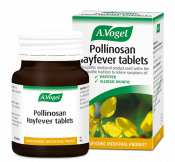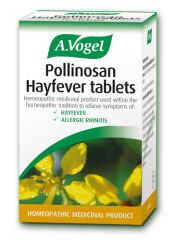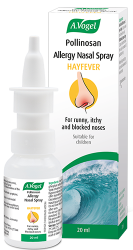Driving and allergic rhinitis
When your allergies are flaring up, the thought of a long car journey may fill you with dread, not only because of the constant sniffles and itchy eyes, but you may be worried about how safe it is to drive whilst taking allergy medication. There are a variety of factors which can be considered to prevent allergies from getting in the way of your journey, including:
1. Cleaning your car
2. Keeping medication close by
3. Having plenty of car snacks
4. Staying hydrated.
Read on to find out more about why these factors are important for controlling allergies whilst driving, and get some tips to help manage the problem.
1. Car cleaning tips
Use allergy-friendly cleaning products
Allergic rhinitis involves the release of a compound called histamine when the immune system comes into contact with an allergen like pollen or animal dander. Histamine increases blood flow to the affected areas and, as a result, the skin can become more sensitive than normal. Therefore, you may have to take extra care when cleaning your car as products with lots of chemicals can irritate sensitive skin. I suggest trying to choose cleaning products that contain no preservatives or detergents as these will be kinder to your skin.
Avoid air fresheners
The nose can become a focal point for allergic rhinitis symptoms with congestion, swelling and a runny nose all becoming problematic. Therefore, as air fresheners have strong scents concocted with a mix of chemicals, they are likely to make these problems worse.
Get the vacuum cleaner out!
Allergens such as pollen, animal dander and dust mites can find their way into the fabric of your car so, to get rid of them, and to reduce the effect that they have on your body, a regular vacuum is necessary.
2. Don’t forget your medication!
The thing about allergic rhinitis is that it can be unpredictable. You may wake up in the morning feeling light and healthy but by the evening your eyes have begun to stream, your nose is blocked and your skin has become sore and itchy.
So, to avoid being caught out, keep your medication on hand during your next car journey. It can be helpful to permanently keep a packet in the glove compartment of your car so that medication is on hand should you need it when you’re out and about. Before taking any though, be sure to check it won’t affect your driving.
The media has published copious amounts of articles which discuss the possible dangers of taking hayfever and allergic rhinitis medication whilst driving. So, what should you do to tackle this problem?1
Well, the key is to read the accompanying leaflet first and if the medication has side effects that include drowsiness, sickness and headaches, it's obviously best avoided if you plan to go for a drive. Also, anything that interrupts your reaction time, vision or hearing will also interrupt your driving ability so should not be taken if you plan to drive.
If you're wondering what to use to address allergic rhinitis, I'd recommend Pollinosan Hayfever Tablets as these provide non drowsy relief from a range of allergic rhinitis symptoms such as itchy eyes and sneezing.
3. Car snacks
It can be tempting to snack on crisps, chocolate and sweets whilst in the car for long journeys or if you need a little pick-me-up after a hard day at work. However, if you’re already suffering from allergic rhinitis these foods, with their high sugar content and artificial colouring, could make symptoms worse. They tend to contain lots of histamine as well which again, has the potential to increase the severity of congestion and itchy skin.
So, instead of opting for these troublesome snacks on your next car journey, something fresher, and perhaps even homemade, is better. Our cranberry and coconut flapjacks for example, are perfect for munching on as you make up miles along the motorway. These contain just a few simple ingredients including oats, dried fruit and sweet maple syrup making them healthy and tasty!
4. Stay hydrated
The variety of takeaways in road side service stations that offer fizzy juice and coffee means these are likely to be your first choice when making any long distance car journey. However, similar to crisps and chocolate snacks, caffeine and refined sugars also contain histamine, so these drinks are best avoided if you're suffering from allergic rhinitis.
Water is your best option as it not only does it keep you hydrated; it rinses the throat of allergens that may be lurking there as well. It also stops your throat from getting dry which would only worsen a cough – a common symptom of the condition. Eight to ten glasses a day is the recommended amount so take a flask on your travels!
However, if you enjoy the comfort of a hot drink, most hot drinks chains now offer a variety of herbal teas which are beneficial to allergic rhinitis sufferers. You may find that nettle tea is helpful for example, as this has natural anti-inflammatory properties.
Other things to remember
Use the air con
If pollen triggers your allergic rhinitis symptoms, when driving, keep the windows shut and use the air conditioning instead. Also, air conditioning helps to remove mould or dust mites if these cause problems.
Circulate air
When setting off, ensure that your car is set to circulate air from within rather than using the outdoor vent setting. This should prevent pollen from getting in the car to allow you to drive more comfortably.
So… top tips for driving with allergic rhinitis:
- Ensure you know the side effects of any medications
- Give your car a clean before setting off
- Keep medication on hand but don’t take it if it has side effects that will disrupt driving
- Keep the snacks healthy, fresh and homemade
- Stay hydrated
- Try our non-drowsy Pollinosan Hayfever Tablets.
Originally written 3 May 2018 (updated 27 December 2019)
What you said!
We recently ran a poll to find out what your favourite tip for driving with allergic rhinitis is. We've crunched the numbers and here are the results.
Results: What is your favourite tip for driving with allergic rhinitis?
45.5% of you said staying hydrated is your favourite tip for driving with allergic rhinitis. Great choice! Water is the best drink to opt for here, as not only does it keep you hydrated; it rinses the throat of allergens that may be lurking there as well.








 Looking for a solution to curb those hayfever symptoms such as itchy eyes, constant sneezing and congestion, then look no further than A.Vogel’s Pollinosan Hayfever tablets.
Looking for a solution to curb those hayfever symptoms such as itchy eyes, constant sneezing and congestion, then look no further than A.Vogel’s Pollinosan Hayfever tablets.

